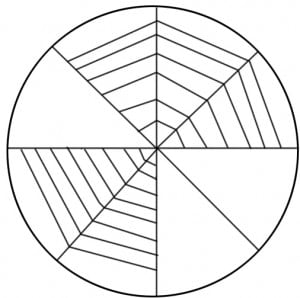Over the past many years, both as a student and a tutor, I noticed there have been many students who were really hardworking, but still unable to score well.
Yet… There are students who spent lesser effort (still hardworking) and score excellent results. I was one of them.
As a student, I couldn’t be bothered. All I know is, I have a very distinct advantage over my peers in scoring for exams. To me, they were just mindlessly, and hopelessly, putting effort into questions after questions, without improvements.
Inefficient drilling that yielded minimal results.
But as an educator, I pondered over this for a long time. Until one day… I realised the difference. The hardworking students who seemingly spent lesser effort but score better understand that exam preparation is most efficient by preparing for the different question patterns.
What exactly does it mean to prepare for different question patterns?
Technically speaking, for each concept that is in the syllabus, there are several ways it could be tested in exams. By preparing for the different ways that could be tested, the student becomes well rounded.
Like a goalkeeper training to stop a penalty shot, he trains to stop low shots, high shots, corner shots, etc, i.e. the different kinds of shots. He doesn’t know how which shot the penalty taker would take; he just knows that these are the only possible shots that the penalty taker could take.
Similarly, a student has to “train” in different question patterns. He/she doesn’t know what questions the evil examiner will set; he/she only knows that these are the possible ways that the examiner could test the class.
Knowing and practicing hard for each question pattern is like preparing a fishing net, ready to catch the questions dropped by the examiner. If any question pattern is missed, there is a likelihood that a test question may “fall through” the net, and the student, being unfamiliar to the question pattern, might not be able to solve it.

If the student does not know all the different question patterns,
there is a likelihood of not being able to do the question in exams.
This means zero marks.
Common sentences you may hear from such students:
- “This topic sometimes can do, sometimes cannot do.”
- “I practised a lot already! But the question never see before, can’t do!”
What can be done to address this?
The best way is to find sources of worksheets that have questions carefully selected and arranged according to the different question patterns.
Unfortunately, the majority of assessment books, school tutorials, school workbook, or tuition materials (if any) do not focus on different question patterns. What this means is that the hardworking student may have spent countless hours on practices, yet still not score the results that he/she deserved.
Worksheets at Eton Tuition have been carefully arranged to expose students to the different question patterns that may appear in exams. Students are guided through the different questions patterns so that they are familiar with how they may be tested. Most of our students see improvements in their results because of this technique.
If you want your child to see similar or better results by allowing us to expose him/her to the different question patterns through our tuition sessions, fill in your details at the contact us page.